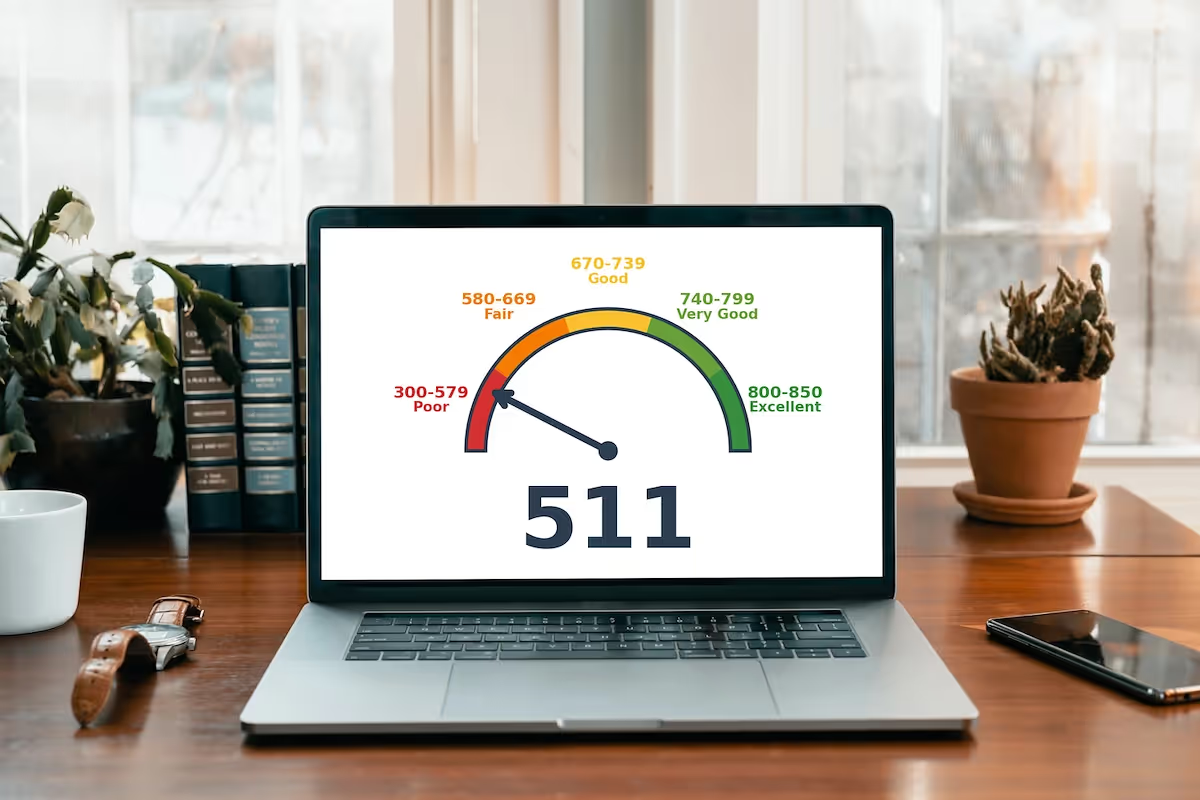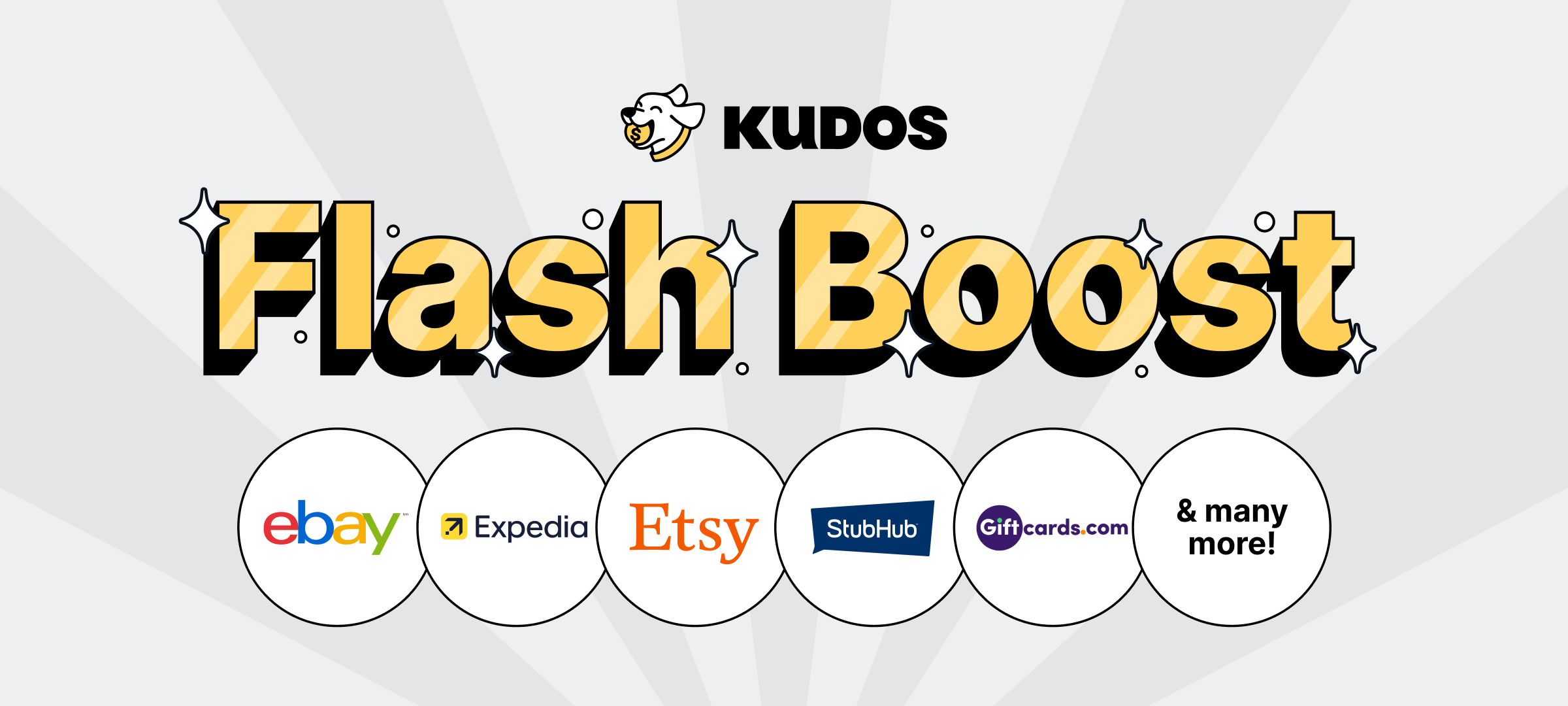
Kudos has partnered with CardRatings and Red Ventures for our coverage of credit card products. Kudos, CardRatings, and Red Ventures may receive a commission from card issuers. Kudos may receive commission from card issuers. Some of the card offers that appear on Kudos are from advertisers and may impact how and where card products appear on the site. Kudos tries to include as many card companies and offers as we are aware of, including offers from issuers that don't pay us, but we may not cover all card companies or all available card offers. You don't have to use our links, but we're grateful when you do!
511 Credit score: What You Need to Know in 2025
July 1, 2025


TL;DR
A 511 credit score is a foundational step on your credit journey, offering a clear path for growth and improvement. According to the FICO model, this score is categorized as "Poor," which simply means there are specific opportunities to focus on for building a stronger financial profile.
What Does a 511 Credit Score Mean?
A 511 credit score places you in the "poor" category of the FICO scoring model, which ranges from 300 to 850. Lenders view scores in this range (typically 300-579) as a sign of high risk, often stemming from a history of payment issues or high debt. This score signals to potential creditors that you may have had significant trouble managing financial obligations in the past.
Financially, a 511 score can create significant hurdles. You'll likely face difficulty getting approved for new loans or credit cards, and any approved credit will probably come with high interest rates and unfavorable terms. This makes borrowing more expensive and can complicate major life purchases. While this score presents immediate challenges, it's not a permanent state and represents a starting point for building a stronger financial future.
Who Has a 511 Credit Score?
While age isn't a direct factor in calculating your credit score, there is a strong correlation between age and the average score. Data shows that scores tend to rise with each successive generation, largely because older consumers have had more time to build a positive payment history. According to a generational breakdown from Experian, here are the average FICO scores by age group as of 2023:
- Generation Z (ages 18-26): 680
- Millennials (ages 27-42): 690
- Generation X (ages 43-58): 709
- Baby Boomers (ages 59-77): 745
- The Silent Generation (ages 78+): 760
Credit Cards With a 511 Credit Score
A credit score of 511 is considered poor, placing you in a high-risk category for most lenders. This can make it difficult to get approved for traditional credit cards, as banks may be hesitant to extend credit. Consequently, your options will likely be limited to secured cards that require a cash deposit or unsecured cards designed for bad credit, which often come with higher interest rates and lower credit limits.
A service like Kudos can help you find the best card for your financial situation with its Explore Tool, which provides personalized recommendations based on your stated preferences. By indicating what you're looking for in a card, such as low interest rates, the tool matches you with suitable options from its database of nearly 3,000 cards to help you make an informed choice.
Auto Loans and a 511 Credit Score
With a 511 credit score, you fall into the subprime borrower category, which means lenders view you as a higher risk. While you can still get approved for an auto loan, you should expect to face significantly higher interest rates than borrowers with better credit.
- Super-prime (781-850): 5.25% for new cars, 7.13% for used cars
- Prime (661-780): 6.87% for new cars, 9.36% for used cars
- Non-prime (601-660): 9.83% for new cars, 13.92% for used cars
- Subprime (501-600): 13.18% for new cars, 18.86% for used cars
- Deep subprime (300-500): 15.77% for new cars, 21.55% for used cars
These rates are based on Experian’s 2025 market report.
Mortgages at a 511 Credit Score
A 511 credit score severely limits your mortgage options, but it doesn't completely shut the door. Your most realistic path is an FHA loan, which, according to credit score requirements, accepts scores as low as 500 if you can make a 10% down payment. Conventional loans are generally out of reach, as they typically require a score of at least 620. While some VA and USDA lenders might consider lower scores on a case-by-case basis, it's uncommon.
With a 511 score, expect less favorable loan terms. You'll face a significantly higher interest rate, increasing your monthly payment and the total cost over the loan's life. FHA loans also come with mandatory mortgage insurance premiums, which are often more expensive for borrowers with lower credit scores. Lenders may also cap your loan amount and require a more detailed review of your finances through manual underwriting to offset their risk.
What's in a Credit Score?
Figuring out what goes into your credit score can feel like trying to solve a complex puzzle, but it generally boils down to a handful of key elements. The most common factors include:
- Your payment history, which tracks whether you pay your bills on time, is the most significant factor.
- Credit utilization, or the amount of credit you're using compared to your total available credit, also plays a major role.
- The length of your credit history demonstrates your experience with managing credit over time.
- Having a healthy mix of different types of credit, such as credit cards and installment loans, can positively impact your score.
- Finally, recent credit inquiries, which occur when you apply for new credit, are also taken into account.
How to Improve Your 511 Credit Score
No matter how low your credit score has dropped, it is always possible to improve it with consistent effort and the right financial habits. Taking deliberate, positive actions can help you build a healthier credit profile over time.
- Monitor Your Credit Reports Regularly. This allows you to find and dispute any inaccuracies or fraudulent activity that could be unfairly dragging down your score. You can obtain free reports from the three major bureaus at AnnualCreditReport.com to ensure your file is correct.
- Establish Automatic Bill Payments. Since payment history is the most significant factor in your credit score, automating payments guarantees you won't have late or missed payments. This builds a positive track record, which is essential for repairing a low score.
- Reduce Your Credit Utilization Ratio. High balances hurt your score, so aim to use less than 30% of your available credit. Paying down your debt is one of the quickest ways to give your score a significant boost.
- Apply for a Secured Credit Card. A secured card is an excellent tool for someone with a 511 score, as it helps you build or rebuild credit history when you might not qualify for other cards. Your responsible use and on-time payments are reported to the bureaus, demonstrating your creditworthiness.
For help maximizing rewards and using your cards more strategically as you build credit, the Kudos browser extension can offer personalized recommendations.
Unlock your extra benefits when you become a Kudos member

Turn your online shopping into even more rewards

Join over 400,000 members simplifying their finances

Editorial Disclosure: Opinions expressed here are those of Kudos alone, not those of any bank, credit card issuer, hotel, airline, or other entity. This content has not been reviewed, approved or otherwise endorsed by any of the entities included within the post.



































.webp)



.webp)

.webp)


